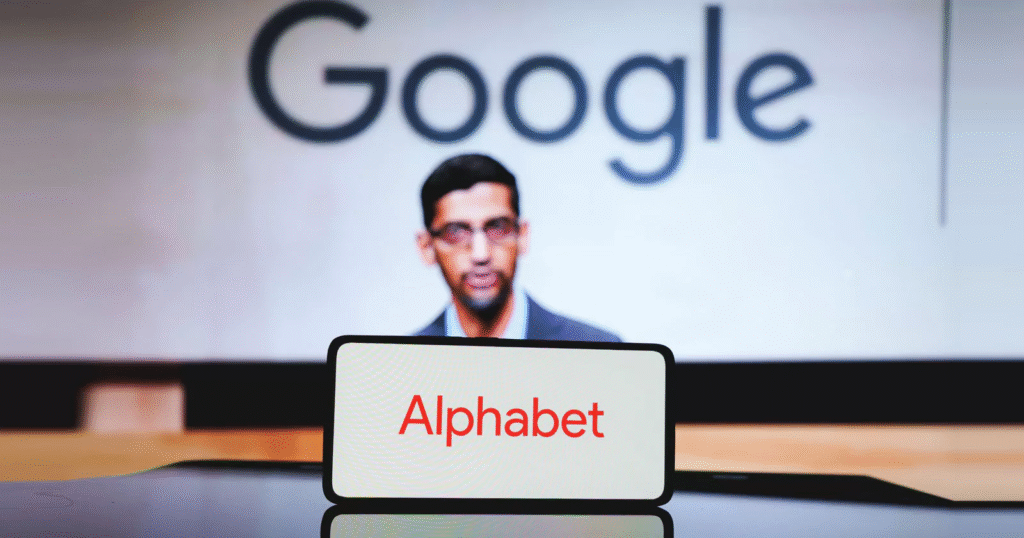Google Launches $250/Month AI Ultra Subscription at I/O 2025
Google unveiled its new Google AI Ultra subscription plan at its annual I/O developer conference, priced at $249.99 per month.

David Paul Morris | Bloomberg | Getty Images
This premium service targets professionals and power users with advanced AI tools and exclusive features. Here’s a breakdown of the development, its background, Google’s motives, what subscribers get, and how it compares to rival AI subscriptions.
Google AI Ultra is a high-end subscription plan offering access to Google’s most advanced AI models and tools. Launched on May 20, 2025, it’s marketed as a “VIP pass” to Google’s AI ecosystem.
The plan is available in the U.S. with a 50% discount for the first three months, costing $124.99 monthly during this period. Google plans to expand it to other countries soon. It’s designed for filmmakers, developers, researchers, and creative professionals who need cutting-edge AI capabilities.
Why Is Google Doing This?
Google’s launch of AI Ultra comes as the company aims to monetize its massive AI investments. Alphabet, Google’s parent company, is spending $75 billion on AI in 2025, a significant jump from $52.5 billion in 2024. With ad revenue growth slowing, Google is diversifying its income through subscriptions. The success of Google One, which hit 150 million subscribers by May 2025, shows strong demand for premium services. Google also faces competition from AI startups like OpenAI and Anthropic, pushing it to offer premium AI plans to stay ahead.
What Do Subscribers Get?
The AI Ultra plan packs a range of exclusive features. Subscribers gain access to the top-tier Gemini app, including Gemini 2.5 Pro with “Deep Think” mode for advanced research, coding, and creative tasks. It offers early access to Veo 3, Google’s latest video generation tool, and Flow, an AI filmmaking app for creating cinematic scenes.
Project Mariner, an agentic assistant, handles up to 10 tasks at once, like research or bookings. The plan includes 30TB of cloud storage across Google Photos, Drive, and Gmail, plus a YouTube Premium subscription for ad-free viewing and offline downloads. Gemini integration in Gmail, Docs, Vids, and Chrome boosts productivity, while NotebookLM provides enhanced research capabilities.
How Does It Compare to Other AI Subscriptions?
Google AI Ultra is pricier than competitors. OpenAI’s ChatGPT Pro costs $200 monthly, offering unlimited access to its best models, Deep Research, and early access to tools like Sora and Codex. Anthropic’s Claude Max plan starts at $100 per month for top-tier features.
Google’s plan stands out with its massive 30TB storage and YouTube Premium, which alone costs $13.99 monthly. However, ChatGPT Pro and Claude Max focus purely on AI, potentially offering more value for users who don’t need storage or media perks. Google’s higher price reflects its broader ecosystem, but it may deter users focused solely on AI tools.
Google’s Broader AI Strategy
Google is also rebranding its $19.99/month Google One AI Premium plan as Google AI Pro, adding features like Flow and Gemini in Chrome at no extra cost.

Free access to AI Pro is being offered to university students in the U.S., U.K., Brazil, Indonesia, and Japan for a school year to build long-term user loyalty. These moves show Google’s focus on expanding its AI user base while competing with rivals. The company is also integrating Gemini 2.5 into Chrome and other apps, making AI more accessible across its platforms.
What’s the Bigger Picture?
The AI Ultra plan signals a shift in how tech giants monetize AI. With development costs soaring, companies like Google, OpenAI, and Anthropic are betting on premium subscriptions to fund innovation. Google’s bundling of AI, storage, and media services leverages its ecosystem to justify the high price.
However, the $3,000 annual cost raises questions about affordability for most users. Analysts see this as Google’s attempt to maintain its edge in AI and search, especially as competitors challenge its dominance. The plan’s success will depend on whether power users find its exclusive tools worth the steep price.


 Can OpenAI’s ChatGPT-Powered Browser Challenge Google?
Can OpenAI’s ChatGPT-Powered Browser Challenge Google?  Grok Banned in Turkey Over Insults to President Erdogan
Grok Banned in Turkey Over Insults to President Erdogan  AI in Education: Help or Rising Hindrance?
AI in Education: Help or Rising Hindrance?  World’s Largest AI Data Center to Rise in Abu Dhabi
World’s Largest AI Data Center to Rise in Abu Dhabi  Sergey Brin’s $700 Million Stock Gift to Philanthropies
Sergey Brin’s $700 Million Stock Gift to Philanthropies  Is AI New Threat to Google?
Is AI New Threat to Google?